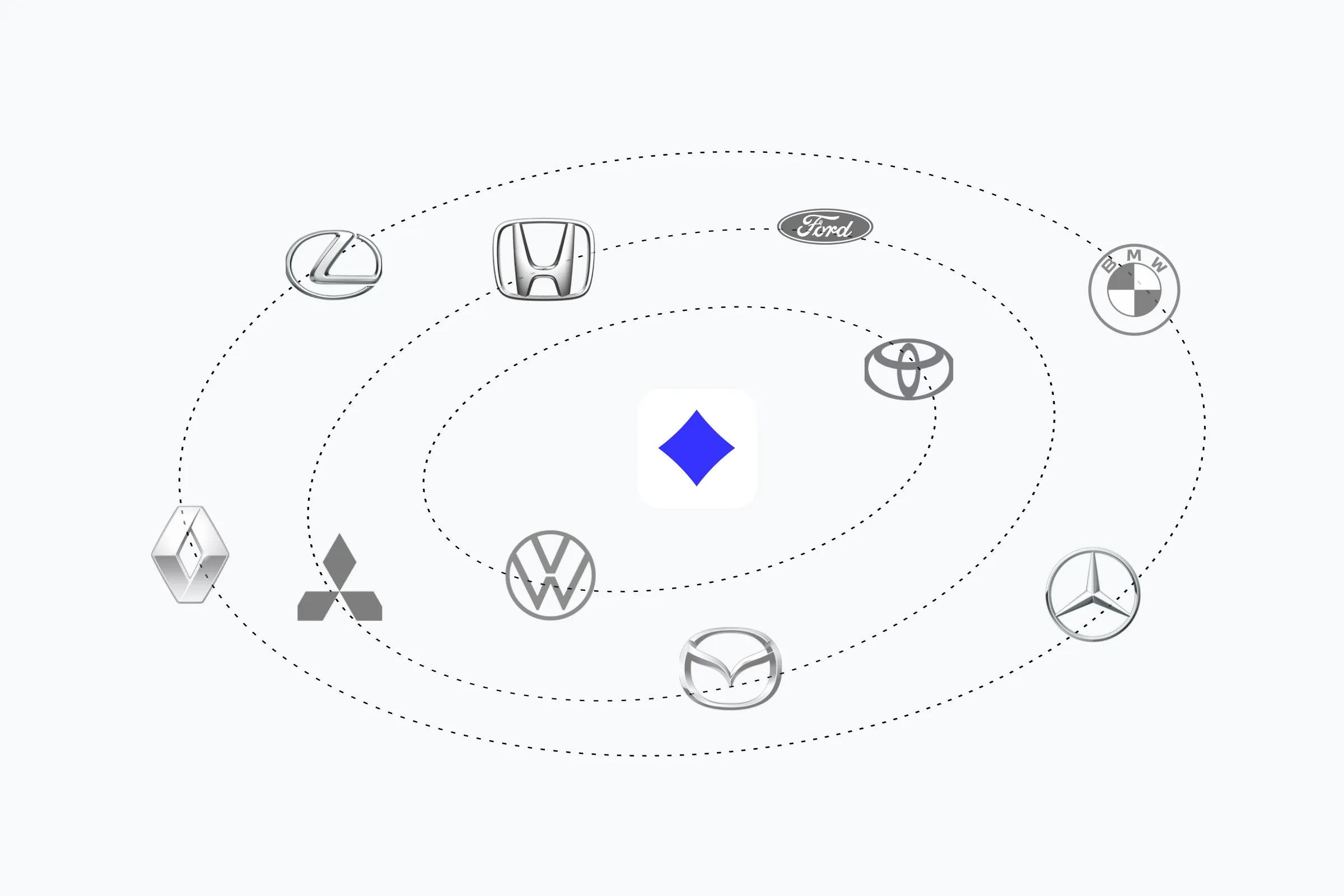Technology
Foundational AI model for parts
Explore the core technology powering Partly's product suite - built to organise the world's fragmented auto parts information. This is AI in practice: machine learning deployed in production to solve real supply chain problems.
Overview
Today’s automotive parts supply chain is highly fragmented and plagued by unreliable data which creates friction between players and results in eroded trust and profitability.
Our team is uniquely built from two worlds: seasoned automotive experts who've lived the day-to-day challenges of this industry, and world-class engineers who've launched spacecraft and built tech for Formula One. Together, we've developed technology that transforms this chaos into structured, functional data.
This technology powers Partly's entire product suite and enables customers to build custom solutions through our APIs.

AI Parts Interpreter

Traditional EPCs are fragmented, difficult to navigate, and inconsistent between different makes and regions. Every parts replacement job requires significant manual interpretation work, and with millions of parts interpreters globally, recruiting and training new people has become one of the industry's biggest pain points.
Partly eliminates this complexity by authoring the universal EPC (Electronic Parts Catalogue) for all manufacturers, providing instant and accurate parts information regardless of make or region.
Capabilities
Unlike traditional EPCs, Interpreter addresses these core limitations:
- Standardisation: Interpreter creates a consistent, standardised user experience that is simple for parts interpreters to use and unlocks digitalisation across parts procurement platforms, trade portals, estimation applications and more.
- Enriched Data: Traditional EPCs lack critical details. Interpreter includes comprehensive part types, assemblies, locations, and interconnections, providing complete context about how parts relate to each other and where they fit on the vehicle.
- Variant Resolution: Instead of showing confusing multiple part options for the same vehicle position, Interpreter uses machine learning to automatically identify and present the correct part based on vehicle data, production dates, and configuration details.
- Interactive Diagrams: Rather than static CAD drawings designed for manufacturing, Interpreter provides interactive diagrams optimised for parts selection, making it easy to navigate and identify the right components.
How it works
- High Quality Data: While other AI systems are trained on fragmented, low-quality data, Interpreter is built on curated, high-quality automotive data that ensures accuracy and reliability. Partly sources data from multiple parties, including licensing OEM data from vehicle manufacturers, government databases, production line changes, port changes, and local content.
- Unified Standard: Interpreter uses Partly's proprietary Human-Centric Assembly (HCA) standard as the single language for all manufacturer parts and vehicle data, organising components the way humans naturally think about them rather than following technical CAD structures.
- Research Team + AI at Scale: Our research team of automotive experts works alongside machine learning algorithms to continuously improve and scale Interpreter's capabilities across all manufacturers and vehicle types. Sophisticated ML accuracy processes including inter-annotator agreement and human-in-the-loop validation ensure continuous model refinement and data quality.

AI Job Optimisation
Parts sourcing involves balancing dozens of variables—cost, speed, supplier reliability, regulations, and sustainability requirements. Currently, these decisions are made manually, leading to suboptimal purchasing choices.
PerfectPart eliminates this manual overhead by automatically processing business rules, preferred suppliers, and dozens of other inputs to recommend the most optimal basket of parts for any given requirements.
Considers:
- Distance, price, shipping options
- Insurer policies
- Business rules
- Local regulations
- Supplier rules
- Part grade
- Recycle parts
- Partial assemblies
- Carbon emissions
- Supplier historical performance
Ability to optimise for:
- Maximum margin
- Fastest parts delivery
- Lowest cost for parts
- Minimum number of suppliers
- ESG compliance: carbon emissions and green parts utilisation
Explore how you can build with our infrastructure
Our professional services team will guide you through implementations for complex workflows.


